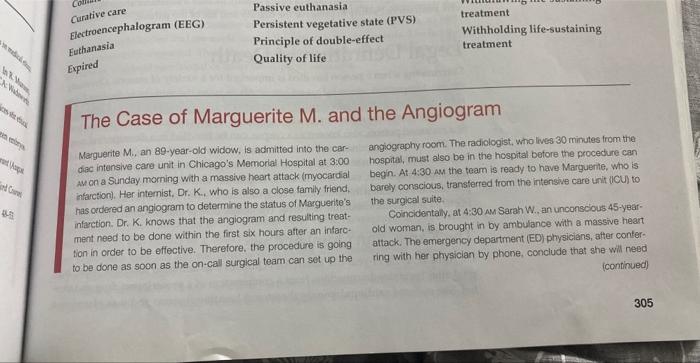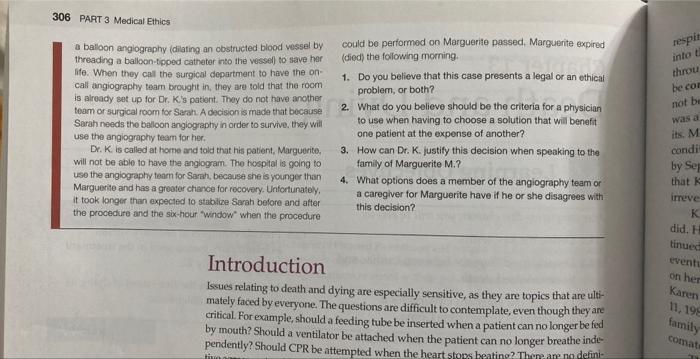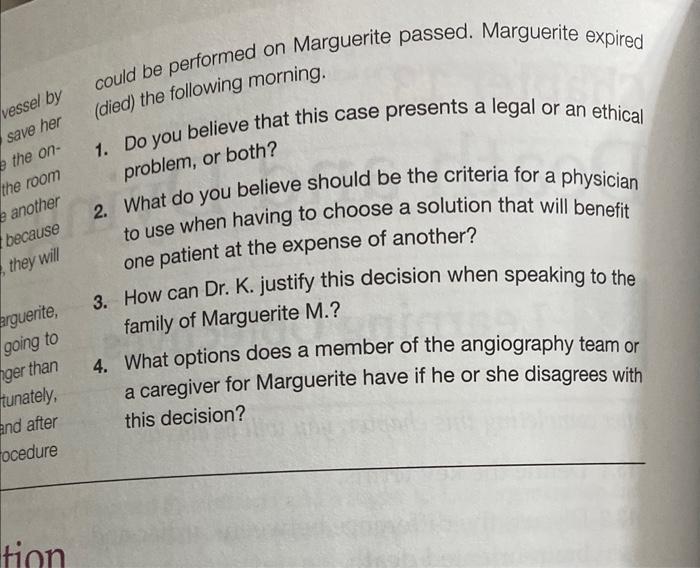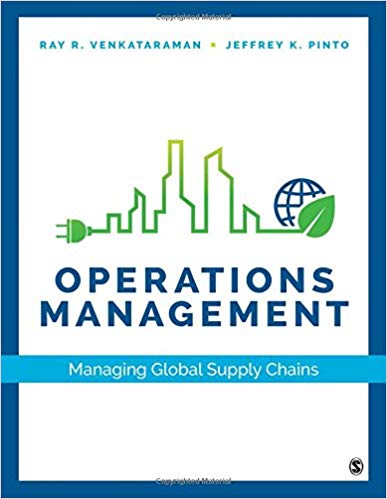week 13 and please answer the four questions of this case study.
describe what you feel the case study is related to when answering the question vou have chosen.
Nonmaleficience- (refraining from harming I am in a position to potentially myself or another) destrovs or otherwise harms someone else.
Beneficence - (bringing about good) I am in a position to benefit someone else.
Fidelity - (promise Keeping) I have made a promise, explicit or Implicit, to someone else.
Veracity - I am in a position to tell the truth or deceive someone
Justice- I am in a position to distribute benefits and burdens among Individuals or groups in society who have legitimate claims on the benefits.
Reparations - I have wronged someone else.
Gratitude- I have been the beneficiary of someone else's goodness.

The Case of Marguerite M. and the Angiogram Merguerite M. an 89-year-old widow, is admitted into the car- angiography room. The radiologist, who lives 30 minutes from the dic intensive care unit in Chicago's Memorlat Hospital at 3:00 hospital, must also be in the hospital before the procedure can as on a Sunday morning with a massive heart attack (myocardal begin. At 4:30 au the team is ready to have Marguerite, who is infarction). Her intemist, Dr. K., who is also a close famlly friend. barely conscious, transferred from the intensive care unit (ICU) to has crdered an angiogram to determine the status of Merguente's the surgical suite. infarction. Dr. K. knows that the angiogram and resulting treat- Coincidentally, at 4:30AM Sarah W., an unconscous 45-yearment need to be done within the first six hours atter an intarc- old woman, is brought in by ambulance with a massive heart tion in order to be effective. Therefore. the procedure is going attack. The emergency department (ED) physicians, after conterto be done as soon as the on-call surgical team can set up the ring with her physician by phone, conclude that she will need (continued) a balloon angiography (dilating an obstructed blood vessel by could be performed on Marguerite passed, Marguerite expired threading a balloon-tipped catheter into the vessel) to save her (died) the following morning. life. When they cal the surgical department to have the oncall angiography team brought in, they are told that the rocm. 1. Do you believe that this case presents a legal or an ethical is already set up for Dr. K's patient. They do not have another problem, or both? team or surgical room for Sarah. A decision is made that because 2. What do you believe should be the criteria for a physician Sarah needs the belloon angiography in order to survive. they will to use when having to choose a solution that will benefit use the angiography team for her. one patient at the expense of another? Dr. K. is called at home and told that his patient, Marguerite, 3. How can Dr. K. justify this decision when speaking to the will not be able to have the angiogram. The hospital is going to family of Marguerite M.? Use the angiography team for Serah, because she is younger than Marguerite and has a greater chance for recovery. Unfortunately. 4. What options does a member of the angiography team or it took longer than expected to stabilze Sarah betore and after a caregiver for Marguerite have if he or she disagrees with the procedure and the six-hour "window" when the procedure this decision? Introduction Issues relating to death and dying are especially sensitive, as they are topics that are ultimately faced by everyone. The questions are difficult to contemplate, even though they are critical For example, should a feeding tube be inserted when a patient can no longer be fed by mouth? Should a ventilator be attached when the patient can no longer breathe independently? Should CPR be attempted when the heart stops beating? Thene are no defini- could be performed on Marguerite passed. Marguerite expired (died) the following morning. 1. Do you believe that this case presents a legal or an ethical problem, or both? 2. What do you believe should be the criteria for a physician to use when having to choose a solution that will benefit one patient at the expense of another? 3. How can Dr. K. justify this decision when speaking to the family of Marguerite M.? 4. What options does a member of the angiography team or a caregiver for Marguerite have if he or she disagrees with this decision









